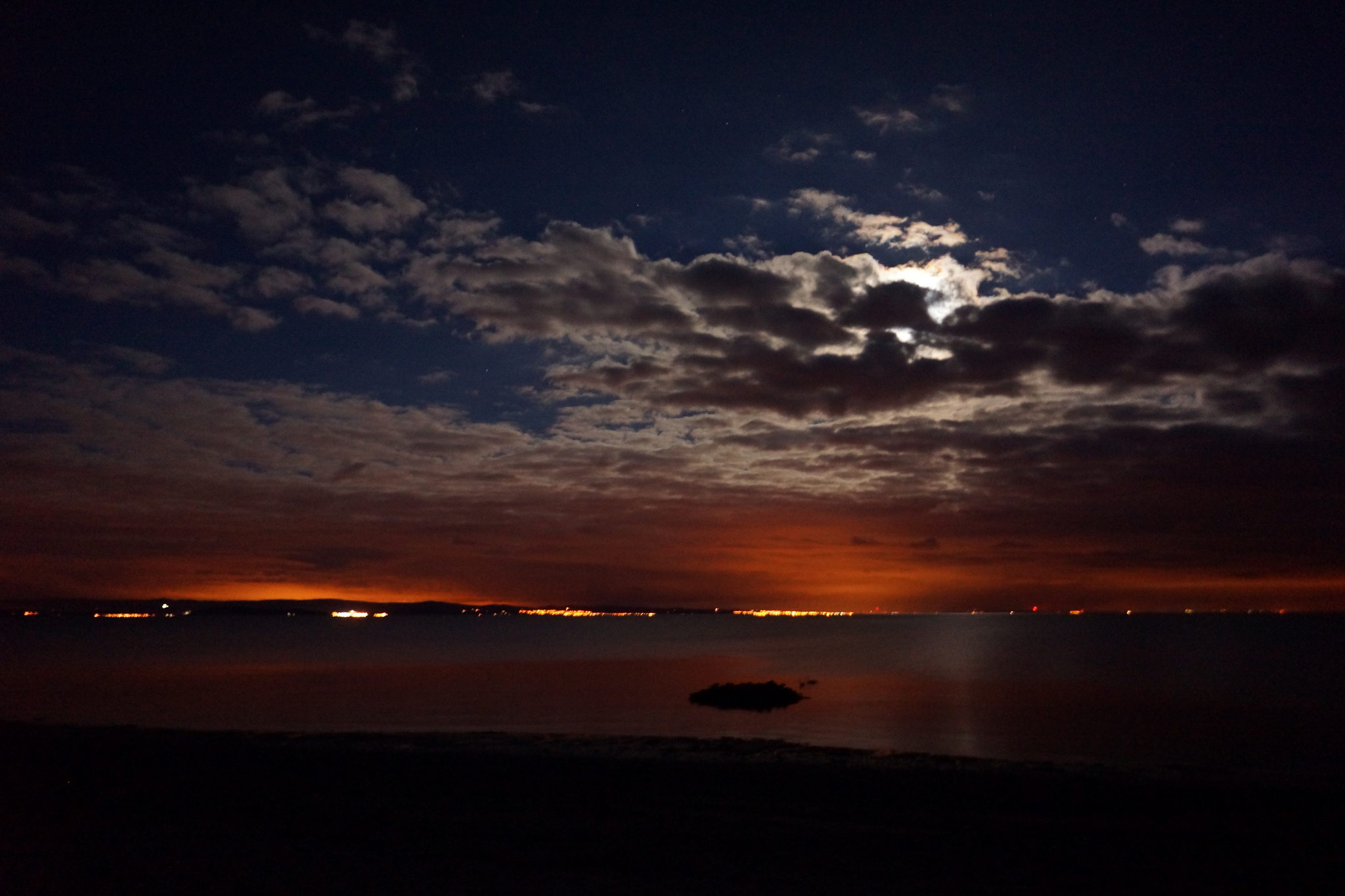Daylight is already failing, turning the glass-like waters a majestic purple.
Steep crags reach up behind the coast, and the tallest peak, still snow-streaked despite a run of dry days, is edged with orange by an invisible sunset on the far side of the island. For an hour I’ve been scanning the roadside verges for trailheads, for gaps in the undergrowth, for patches of unused land behind the trees, but I still haven’t found the place I’m looking for.
This place will be entirely unremarkable to the untrained eye. It will be nothing more than an arbitrary spot in the landscape.
But to me it will be immediately clear that this is the spot.
In a split-second of practiced analysis I will note that the ground is flat and smooth and free of rocks and thorns and thick foliage. It will be free of trash, too, and perhaps exhibit a telltale circle of scorched earth; not too fresh, but neither too old.
I’ll notice that the land is dry and well-drained, but a glance at the sky and a measure of the breeze will tell me that it will not rain tonight. There’ll be running water nearby, and just enough driftwood of just the right size and shape to boil two mugs of water.
I’ll judge the spot’s proximity to the nearest settlement, considering its size and character and the fact that a handy clump of bushes will be sheltering it from view. And I’ll know that likelihood of someone wandering this way after nightfall on a Sunday is zero.
I’ll look at the nearby trail, estimate the quality of the morning view, and know that a dog-walker will get a surprise they hadn’t bargained for. But dog-walkers have always made for reliable alarm-clocks, so this will be a good thing (for me, if not for the dog-walker).
But I’m climbing into the fells now, steep and thick with bracken, and the spot looks unlikely to reside up here. I make a quick decision and pull a U‑turn, freewheeling back down towards the coast. It’s almost dark, so I need not be shy about pulling off the road and heading through the trees towards the beach. I trudge the sandy trail that’s been hacked through the gorse — and there it is: my perfect wild-camping spot.
I dump my bike. A full moon is rising in a clear sky: I will not need my head-torch tonight. I gather enough rocks to build a three-sided wind shield. Then I gather dry sticks and driftwood and lay a log-cabin fire. I apply a generous amount of lighter fluid and set a match to it. Bushcraft can wait: I am hungry.
The lights of the village are half a mile away, visible every time I stand up. And some eagle-eyed curtain-twitcher might spot the smoke trail and a dull orange glow behind some distant bushes. But people in this part of the world would sooner remain in front of the telly than investigate. It feels bizarrely thrilling to know this; that people are so dependable in their ways, and that my night will pass undisturbed.
A three-minute boil is enough to sterilise my mug of river water, no matter what its concentration of sheep’s piss or blue-green algae. I dump a load of pasta into the water and unroll my bivvy-bag, give my sleeping bag a shake, and inflate my mattress. The last traces of light fade from the sky as I ease into the makeshift bed, slurp hot pasta with a dash of seawater seasoning, and push the burning logs further into the heart of the fire. Tonight is going to be a cold one.
I sit up quickly: daylight is already growing, turning the glass-like waters at my feet a cold shade of pink. Steep crags reach up behind me, and the tallest peak, still snow-streaked, is tipped with orange by a sunrise hiding behind the eastern horizon.
My bivvy-bag is coated with frost, the fire now nothing but ash. I scramble from my sleeping bag. A figure in the middle-distance stands in silent bewilderment. The dog sniffs at my shoes.
A dousing of lighter fluid makes for a quick hot breakfast: bushcraft can wait. I finish packing the last of my belongings, scatter the fire with sand, and begin to walk away. And I look back at the spot which, to the untrained eye, is entirely unremarkable; nothing more than an arbitrary spot in the landscape.
For a single night it was my home. I will never come back. Nobody will know what happened here.
Nothing happened here.
These are the things I love about wild camping. And it is good to be reminded of this, even on a simple twenty-four-hour excursion to the Isle of Arran and back on a rare free Sunday in February.



Something to add?